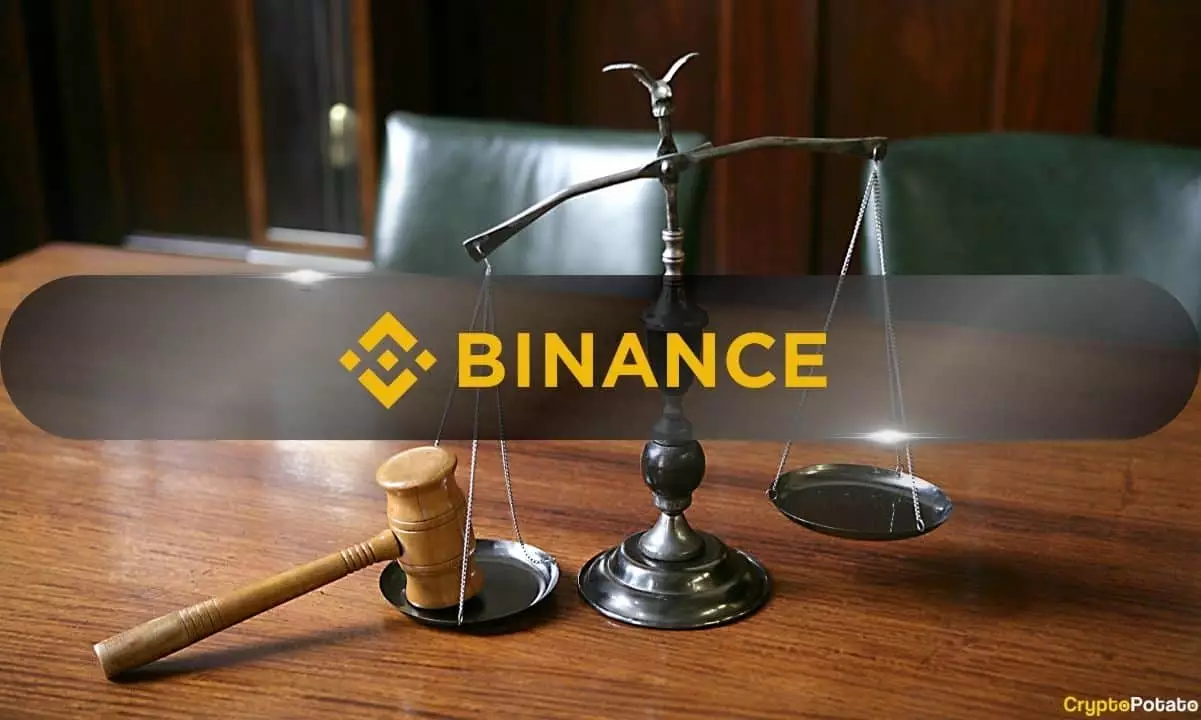The legal landscape surrounding cryptocurrency exchanges is continually evolving, with recent events concerning Binance—the world’s largest crypto exchange—serving as a stark reminder of the complexities at play. The United States Supreme Court’s decision to reject a petition from Binance and its founder, Changpeng Zhao, for a review of lower court rulings has significant implications for the future of cryptocurrency regulation. This article delves into the ramifications of this refusal and the associated legal challenges faced by Binance, emphasizing the ongoing struggles between nascent technology and regulatory frameworks.
At the heart of the controversy lies a ruling that applies U.S. securities laws to Binance, despite its lack of a physical headquarters in the United States. The January judgement stemmed from a lawsuit filed by investors claiming that Binance was engaged in the illegal sale of unregistered tokens. The crux of the case centers on whether Binance should be held accountable under U.S. securities regulations because it catered to American clients. The Second Circuit Court of Appeals had previously recommended that these laws could apply due to irreversibility of transactions executed within U.S. territory, thus suggesting accountability to U.S. law.
The implications of this determination are profound, as it sets a precedent for how international entities operating in the digital finance space are treated under U.S. law. The rationale presented by the appellate court hinges on the argument that physical transactions processed on U.S. servers give jurisdiction to American regulatory bodies over foreign entities. This legal reasoning raises questions about the nature of global commerce in the digital age and suggests a shift towards greater regulatory oversight, regardless of geographical boundaries.
Binance’s journey through the legal system has been fraught with turbulence. Back in 2020, investors initiated a class-action suit alleging that Binance’s failure to provide crucial risk disclosures related to token trading resulted in significant financial losses. Fast forward to 2023, and the U.S. Securities and Exchange Commission (SEC) positioned itself against Binance, accusing the platform of unlawfully facilitating trades in cryptocurrencies that should have been registered as securities. This series of events illustrates the growing scrutiny cryptocurrency exchanges face, as regulators grapple with the proliferation of digital assets and the associated risks to American investors.
In November 2023, Binance took a step towards resolution by settling for $4.3 billion with the U.S. Department of Justice for violations related to anti-money laundering and terrorism finance laws. Meanwhile, the crypto exchange’s operations continued to attract legal challenges, including a separate class-action suit in Canada.
This unfolding situation with Binance sheds light on the larger context of cryptocurrency regulation, a topic of intense debate among policymakers. The refusal of the Supreme Court to hear Binance’s appeal magnifies the urgency for clear regulatory guidelines tailored to digital assets. As technology continues to outpace regulatory frameworks, companies like Binance find themselves ensnared in a legal limbo, where they must navigate a patchwork of regulations not only in the U.S. but globally.
The complexities presented by cryptographic technology mean that traditional securities regulations may not adequately address the nuances of digital currencies. Yet, the ruling implies that regulators are not ready to loosen their grip. Lawmakers are increasingly recognizing the need for comprehensive frameworks that can adapt to the rapid growth and evolution of technology.
What lies ahead for Binance is uncertain but undoubtedly complex. With the Supreme Court’s decision allowing the class-action lawsuit to proceed, the exchange is likely to face increasing pressure. Moreover, the ramifications of regulations on international cryptocurrency exchanges will likely reverberate across the industry, setting a precedent for how entities handle compliance and consumer protection in the digital age.
As the world watches Binance, several questions loom: Will the unfolding legal battles prompt more stringent regulations for the cryptocurrency market? Could we soon see a shift where international exchanges are compelled to establish physical presences in multiple jurisdictions to remain compliant?
The evolving narrative surrounding Binance underscores a pivotal moment in the history of cryptocurrency regulation, requiring stakeholders to come together to ensure that the innovation driving this space does not come at the cost of consumer protection and legal accountability. As these developments unfold, the intersection of technology and law will demand unwavering attention and adaptation from those participating in the rapidly expanding digital economy.

